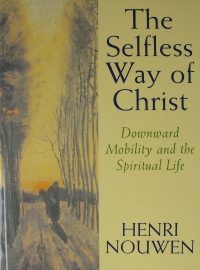Small Boat, Wild Sea: Print
View cart “Journey: A6 greetings card” has been added to your cart.
Artist: Francesca Ross
Rated 5.00 out of 5 based on 1 customer rating
(1 customer review)
£12.50
Print featuring original artwork by Francesca Ross.
Out of stock
Additional information
| Weight | 0.055 kg |
|---|---|
| Dimensions | 29.7 × 21 × .2 cm |
Reviews(1)
Add a Review
Add a Review Cancel reply


Journey: A4 signed print
Creativity, Spiritual Growth
Words: None
Background: Artist Mary Fleeson comments...'The design of ‘Journey’ was an experiment inspired by a manuscript at the British Library. The parchment I saw had been painted with a rich purple-red ink and the script was formed using gold ink which appeared coppery in colour. Therefore I formed my cross in a similar way and to achieve the layered textural depth effect I experimented with collage.
The working title for the piece was ‘Unknown Journey’, its layers representing C.S Lewis’ view of death as an ‘onward and upward’ journey to a better, brighter, more ‘real’ place.'
Printing and Sizing: This item is 210mm x 297mm and is printed on 300gsm card stock.
£14.50


The Selfless Way of Christ
Spiritual Growth, The Inner Journey
Downward Mobility and the Spiritual Life by Henri Nouwen
In these short reflections Herne Nouwen explores the theme of downward mobility as the way of Christ, and the things that tempt us away from it, namely, the lure of success, of power, of being needed and important. Originally serialized in the magazine Sojourners, Nouwen wrote the articles during his years as a professor at Yale Divinity School. There he enjoyed academic success and found fame as a spiritual writer, but was struggling to find his true vocation. Here he seeks to explain for himself and his readers how choosing the downwardly mobile path can, conversely, be the means of growth and new life in Christ.
£8.99
Sold out


Don’t Forgive Too Soon: Extending the Two Hands that Heal
Influences & Suggested Reading, Spiritual Growth, The Inner Journey
This is an illustrated book by Matthew Linn, Sheila Fabricant Linn and Dennis Linn. They describe it as follows: 'When we are hurt, we are tempted to either act as a passive doormat or to strike back and escalate the cycle of violence. We can avoid both of these temptations and find creative responses to hurts by moving through the five stages of forgiveness. In so doing, we discover the two hands of nonviolence: one hand that stops the person who hurts us and the other that reaches out, calms that person and offers new life. This book has healing processes so simple that children can use them."
£12.99
Sold out


A Silent Action: engagements with Thomas Merton
Spiritual Growth
Thomas Merton's life, especially once he had become a writer, was to a great extent one of dialogue with people who were distant, both geographically and historically. In these probing and perceptive studies, Rowan Williams looks closely at the key intellectual and spiritual relationships that emerge in Merton's writings, exploring the impact on him of thinkers as diverse as Hannah Arendt, Karl Barth, William Blake, Dietrich Bonhoeffer, Olivier Clement, Fyodor Dostoevsky, Paul Evdokimov, Gerard Manley Hopkins, Vladimir Lossky, John Henry Newman, Boris Pasternak and St John of the Cross.
£10.99



Beautiful print